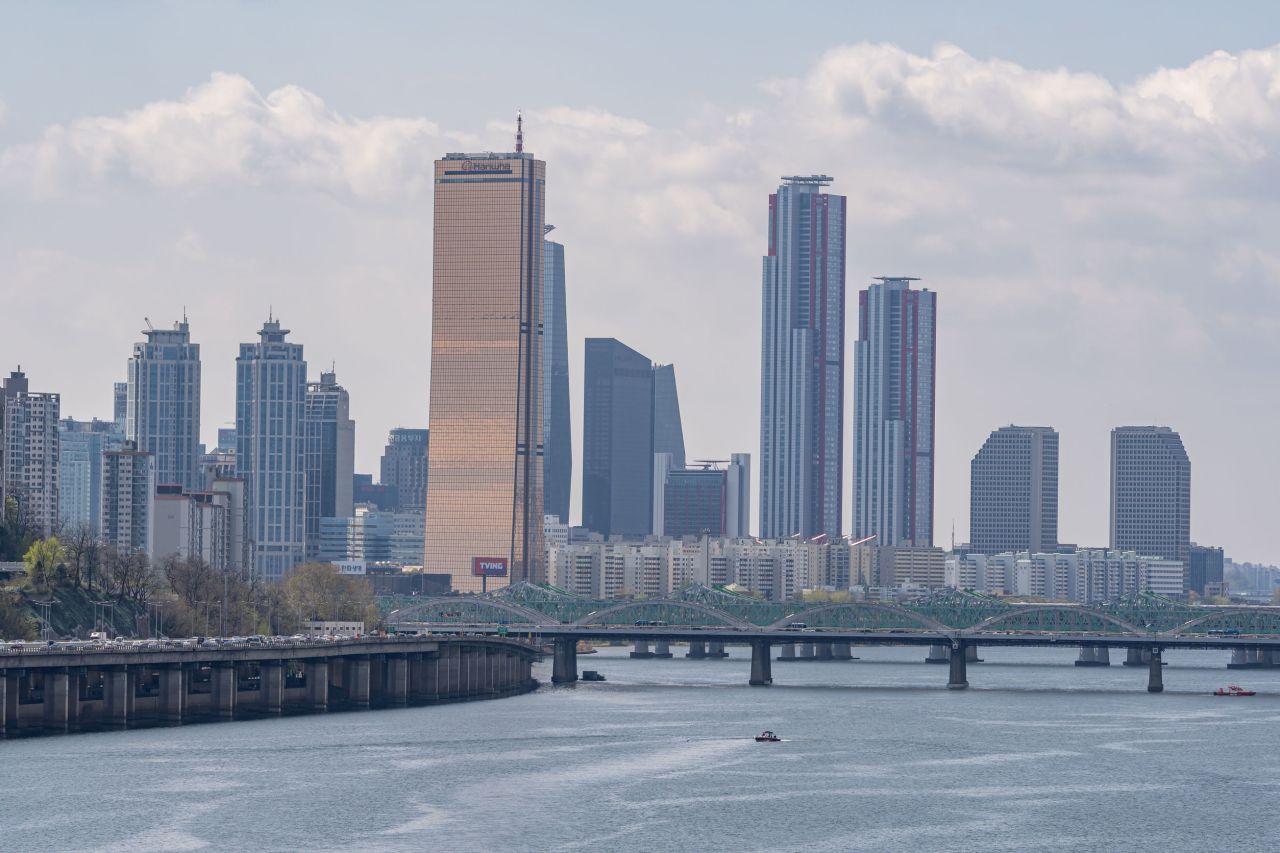 |
An external view of Seoul's Yeouido business district (123rf) |
South Korea‘s commercial real estate market has been relatively less affected by the pandemic as the demand for both prime offices and logistics assets remains stable partly thanks to high liquidity and profit-seeking investors, reports showed Tuesday.
The higher market liquidity coupled with the resilience of the economy, has instead beefed up competition for deals involving “core assets,” or prime office buildings that offer investors a stable source of income.
“The COVID-19 outbreak had limited direct impact on the office investment market in the first half, but the pandemic has had the effect of focusing market liquidity in the market further onto office properties,” said Philip Jin, head of research at real estate service firm Cushman & Wakefield Korea, wrote in a note.
“Investors’ preference for core assets with high-quality tenants, location advantages and superior specifications is growing day by day.”
For the first half of 2020, the office transaction volume came to 4.7 trillion won ($3.9 billion), down some 20 percent from a year earlier, Jin said suggesting the figure is “active“ in the context of the impact of COVID-19.
The insurance firms‘ sales of real estate assets in the face of the change in their accounting standards starting 2022, has attributed to “active” transaction, he added.
The low volatility in the domestic office market stems from Korea’s stable labor market, which recorded a comparatively low unemployment rate at 4.3 percent in June, a seperate report by Jones Lang LaSalle‘s Seoul branch.
Other than Korea‘s strict guidelines against layoffs, the office supply in Seoul’s key business districts in Gangnam and central area will enter into supply-light phase and set the stage for a robust rental performance, after the capital city‘s supply peaks in 2020, wrote Regina Lim, head of Asia Pacific capital markets at JLL.
As for the demand for logistics assets, Lim anticipated room for e-commerce growth in one of the world’s most online shopping-friendly countries.
“Despite the high penetration rate, we believe there is still room for growth. Korea’s faster evolution to online retail stems from its thriving e-commerce ecosystem which we believe would continue to facilitate a transition to online going forward,” wrote Lim. “Juxtaposed against the advanced e-commerce ecosystem, Korea logistics facilities are well behind.”
The government initiative to revive listed Korean real estate investment trusts will not only soak up domestic liquidity but also provide a secular driver of the real estate market, Lim said. At least 10 REITs with nearly $1.6 billion worth of assets are expected to be listed on the stock market for the next 18 months.
Moreover, the Korean market is anticipating more sales and leaseback deals by companies in search of asset-light strategies to improve balance sheets, giving property investors fresh buying opportunities. The sales and leaseback deals typically allow the investors to own a building that is mainly leased by the seller of the property.
By Son Ji-hyoung (
consnow@heraldcorp.com)






![[Herald Interview] 'Trump will use tariffs as first line of defense for American manufacturing'](http://res.heraldm.com/phpwas/restmb_idxmake.php?idx=644&simg=/content/image/2024/11/26/20241126050017_0.jpg)
![[Exclusive] Hyundai Mobis eyes closer ties with BYD](http://res.heraldm.com/phpwas/restmb_idxmake.php?idx=644&simg=/content/image/2024/11/25/20241125050044_0.jpg)
![[Herald Review] 'Gangnam B-Side' combines social realism with masterful suspense, performance](http://res.heraldm.com/phpwas/restmb_idxmake.php?idx=644&simg=/content/image/2024/11/25/20241125050072_0.jpg)